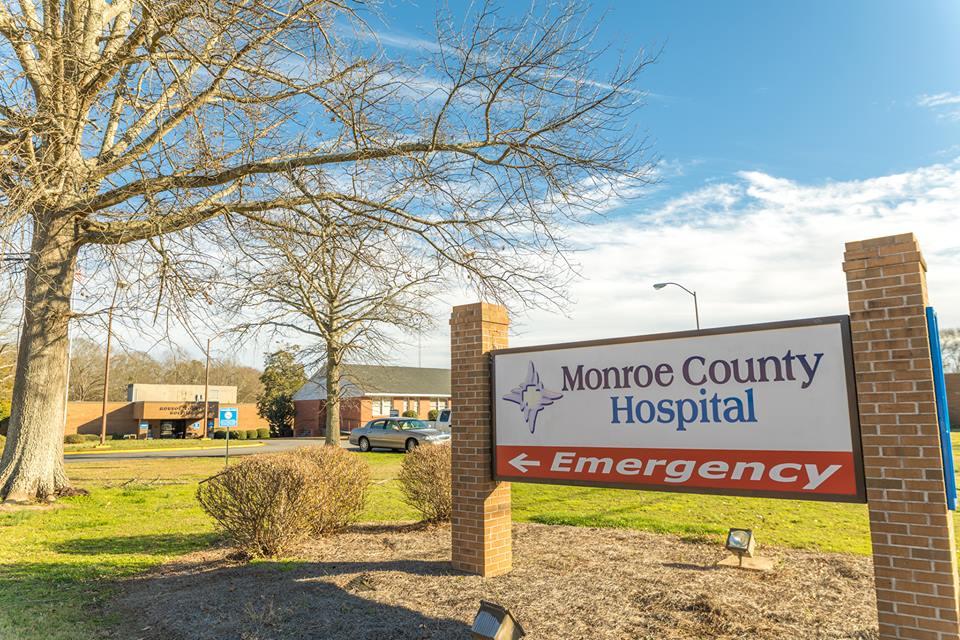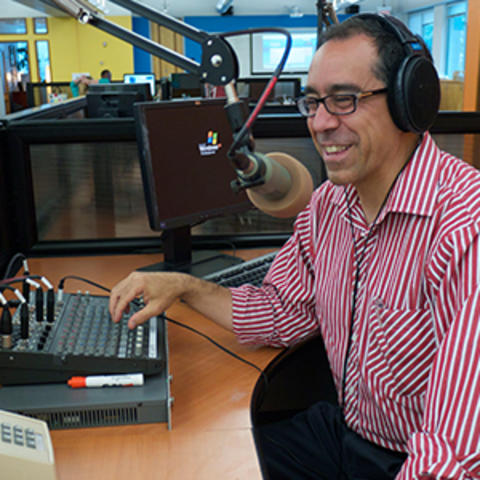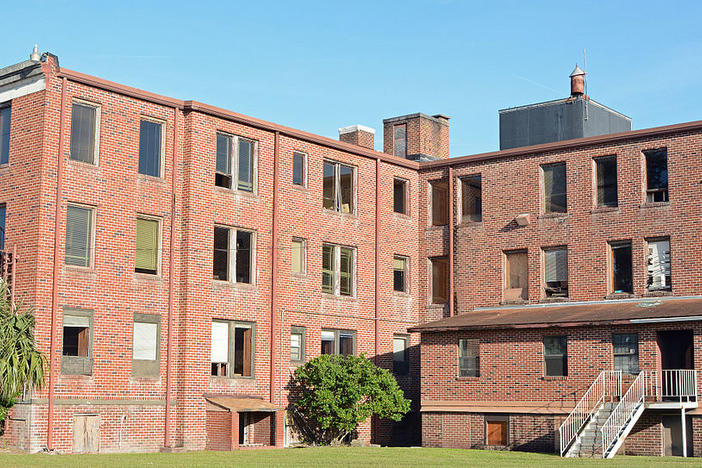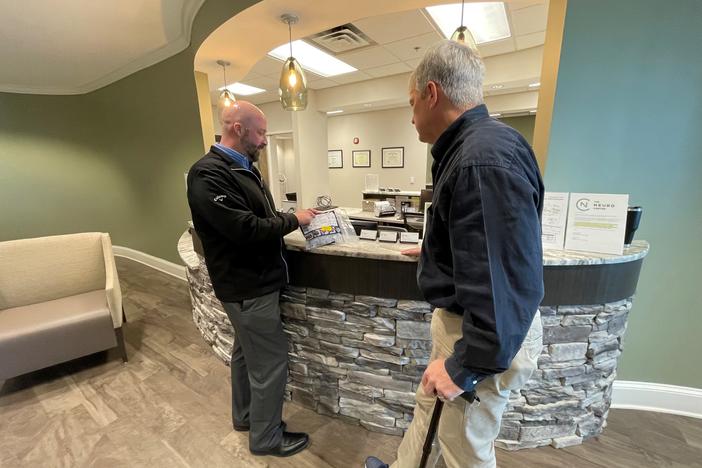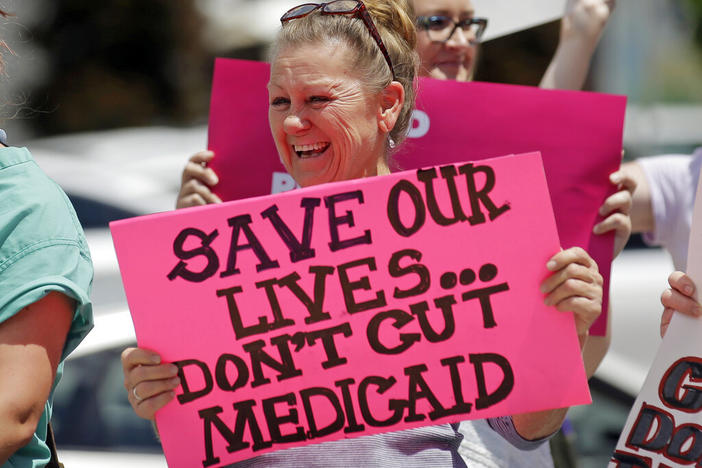Section Branding
Header Content
A Middle Georgia Hospital Seeks A Public Fix
Primary Content
Bonita Johnson suffers with the lung disease, chronic obstructive pulmonary disease, or COPD.
Twice she went to the hospital emergency room because she had trouble breathing, the last time about a year ago. That ER was in Monroe County Hospital in Forsyth.
Listen here for the story of Monroe County Hospital.
"They treated me well,” Johnson said. “They can be a little bit slow at times with getting you things like water and what not. For the most part I feel they took pretty good care of me."
Johnson lives southeast of Forsyth and she said Monroe County Hospital is the closest emergency room.
"It's just too far to Macon or Griffin or Thomaston to make it to any other hospital,” said Johnson. “People could die if we lose this hospital."
But the hospital is in trouble and it’s turning to the community for help. This month residents of Monroe County in Middle Georgia will vote on whether to raise property taxes and keep it open.
Greg Tapley, chairman of the Monroe County Commission, said he opposes the increase but thinks voters should decide the fate of the facility, which opened in the late 1950s.
“For every person that I've got contacting me about supporting it, I have another that says … 'shut it down it's losing money,'” Tapley said.
Over the last few years the county has spent $300,000 annually to balance the hospital’s books. Last year, the county backed a $2 million line of credit, which the hospital exhausted in December.
“It's become a crisis,” Tapley said. “I believe that's the proper term for it.”
According to Tony Ussery, the chairman of Monroe County Hospital Authority, without the public support and additional help from the county government, “we would have to shut down the hospital immediately.”
Ussery said the vote for a property tax increase would be enough to raise $1.2 million, which would go directly to the hospital's budget.
Ussery said the support would give Monroe time to restructure. Last fall, Navicent Health in Macon took over the hospital’s management. That management is planning to cut the number of beds from 25 to 10 and to emphasize emergency room services.
Monroe County Hospital isn’t the only rural hospital that’s struggling. They depend to a larger degree than urban hospitals on Medicare and Medicaid, which don’t cover costs, said Chuck Adams, executive director of the Center for Rural Health. That’s not including the cost for the uninsured.
Adams said several other rural hospitals have sought public tax money and cut back services to survive. Adams said that if taxpayers are going to be asked to raise taxes for a hospital that’s losing money, change is needed.
”A positive is that the community gets behind a hospital that it knows needs to change its model,” he said.
The hospital contributes to the overall economy of Monroe County, said Cheri Sparks, the CEO of the Forsyth-Monroe Chamber of Commerce. Sparks hopes voters will approve the tax increase on March 21st -- the date of the vote -- and that county commissioners will give it final approval.
”We can do our best and we can do what we can,” she said. “But I think this is a bigger issue than just each community rallying to save its hospital.”
The state has tried to step up. Legislators created a program that would give income tax credits to people and companies that donate money to rural hospitals. But that won’t help Monroe County Hospital’s immediate need. So hospital officials will wait for a community’s vote.
Secondary Content
Bottom Content

